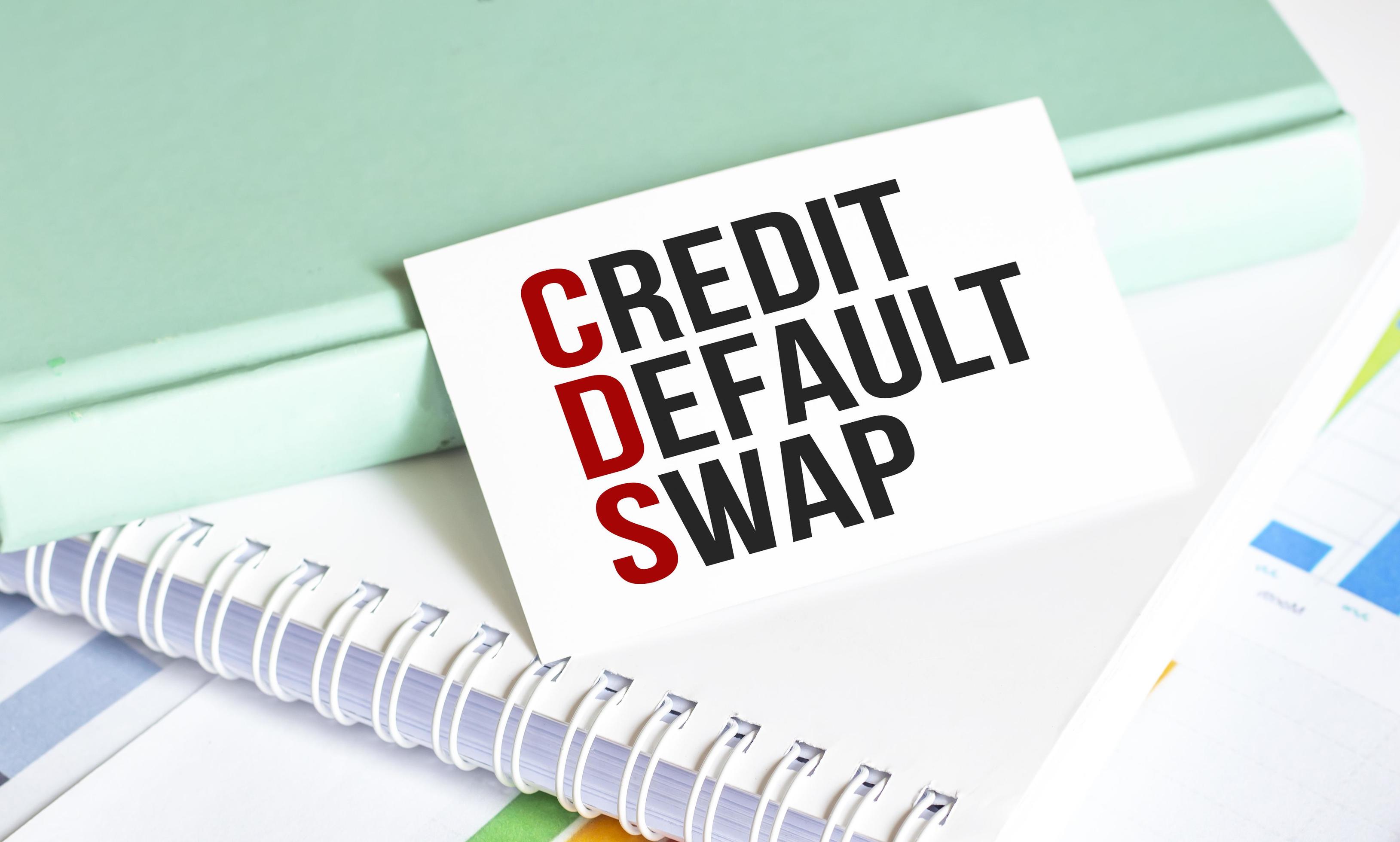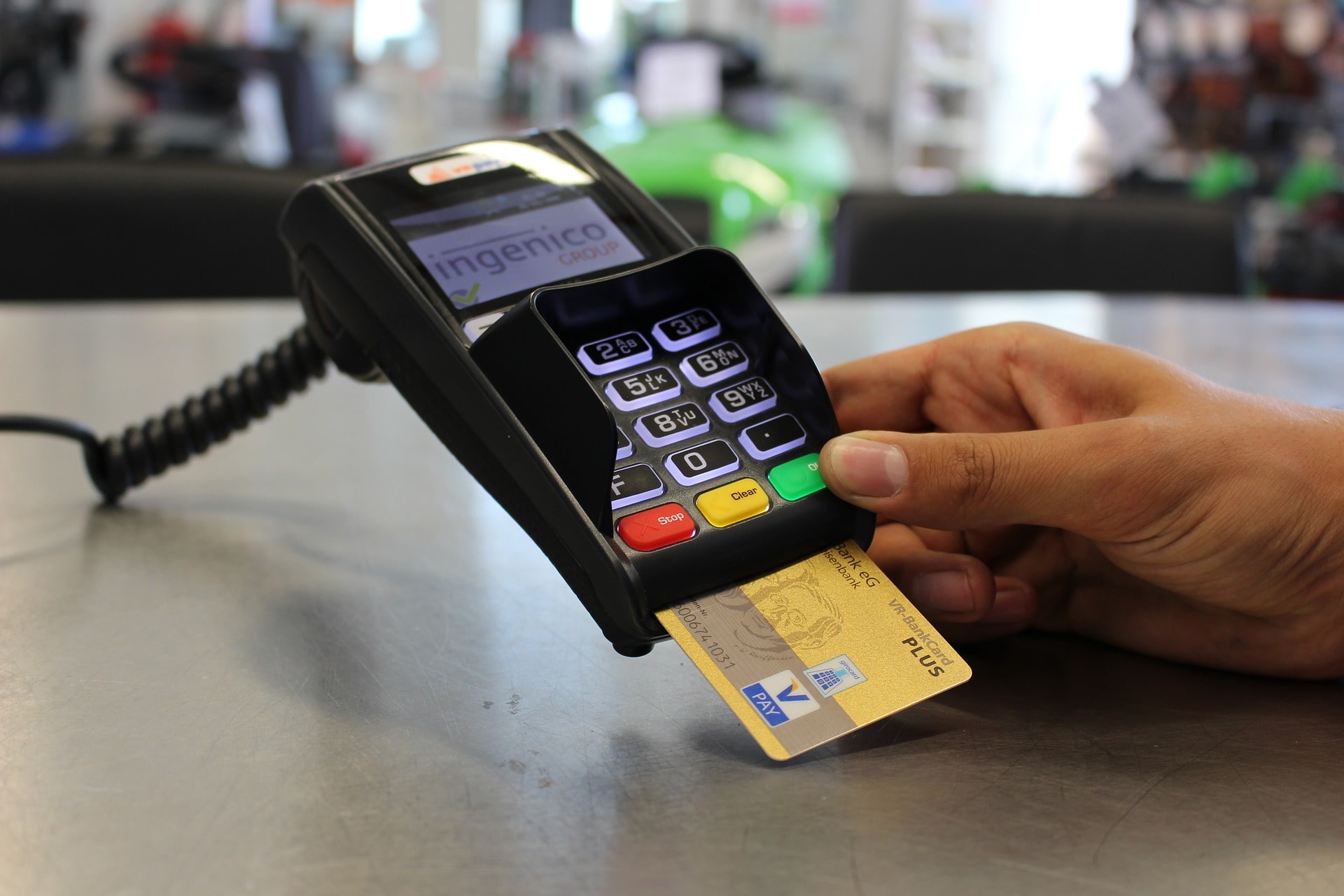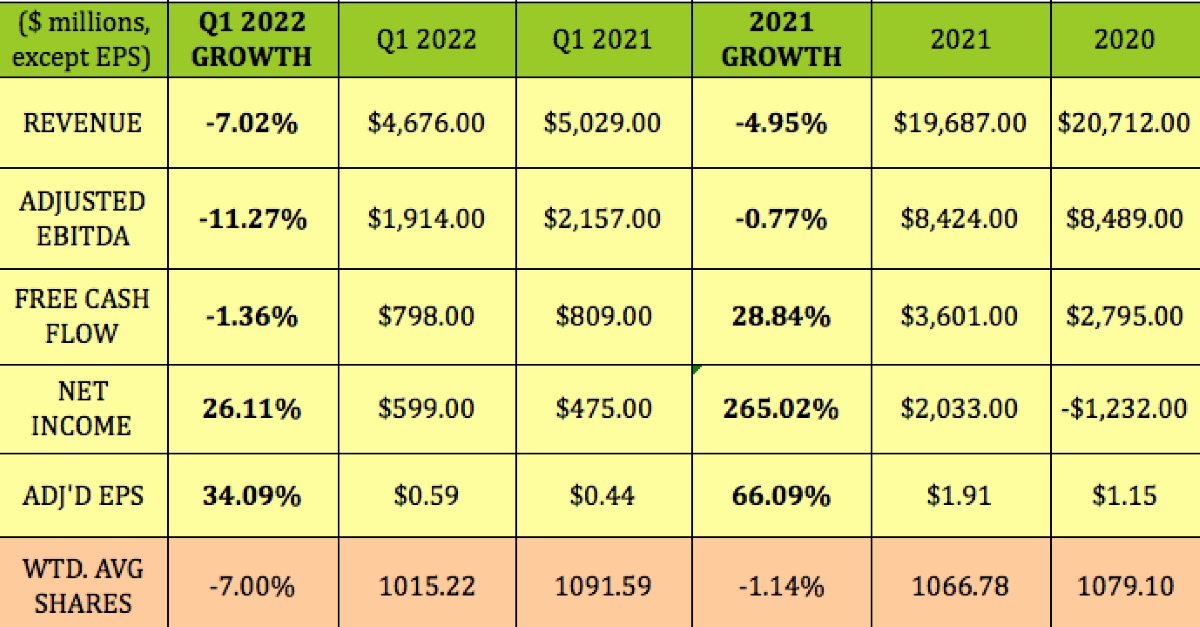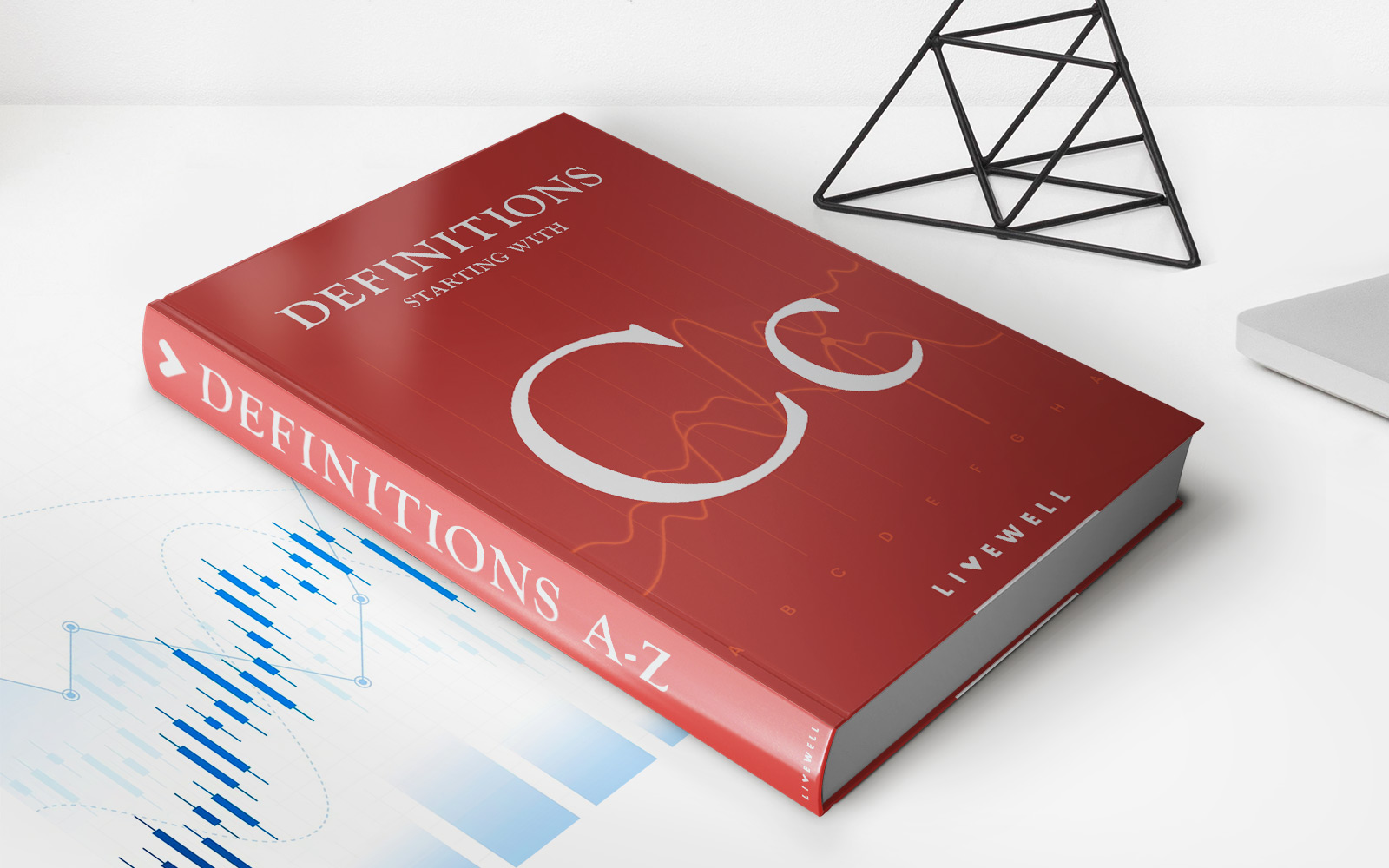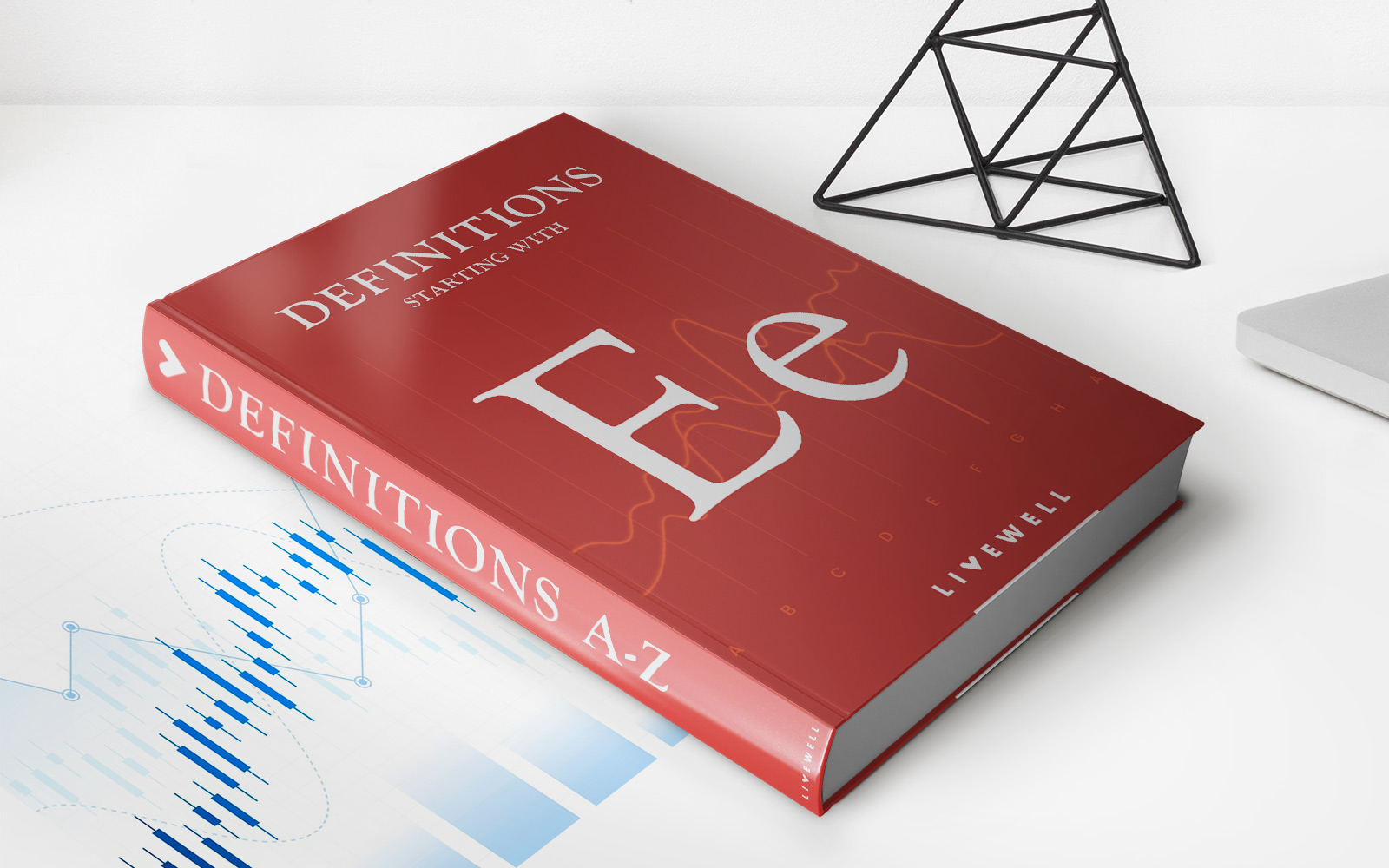

Finance
How To Make Money Using Credit Card
Modified: February 21, 2024
Learn how to make money using credit cards and improve your financial situation. Explore various strategies and tips for maximizing your finances with credit cards.
(Many of the links in this article redirect to a specific reviewed product. Your purchase of these products through affiliate links helps to generate commission for LiveWell, at no extra cost. Learn more)
Table of Contents
- Introduction
- Understanding Credit Cards
- Choosing the Right Credit Card
- Maximizing Cashback and Rewards
- Utilizing Sign-Up Bonuses
- Taking Advantage of Introductory 0% APR Offers
- Using Credit Cards for Everyday Expenses and Bill Payments
- Avoiding Debt and Interest Charges
- Managing Credit Card Fees and Charges
- Protecting Your Credit Card Information
- Conclusion
Introduction
Welcome to the world of credit cards, where the plastic in your wallet can be a powerful tool to help you make money. Credit cards are not just convenient for making purchases; when used wisely, they can also be a valuable asset in your financial strategy. This article will guide you on how to make money using credit cards.
Using credit cards strategically can provide you with cashback, rewards, sign-up bonuses, and even interest-free financing. By understanding the ins and outs of credit cards and leveraging their features, you can maximize your financial gains while avoiding debt and unnecessary charges.
However, it is crucial to approach credit cards with caution and responsibility. While they offer numerous benefits, abusing them can lead to financial trouble. It’s important to have a clear plan in place to make the most of your credit cards while minimizing any potential risks.
In this comprehensive guide, we will explore various strategies to help you make money using credit cards. We will discuss how to choose the right credit card, maximize cashback and rewards, take advantage of sign-up bonuses, utilize 0% APR offers, and much more.
Let’s get started on a journey to discover the possibilities that credit cards hold for your financial growth. By the end of this article, you will have the knowledge and tools to make informed decisions and use credit cards to your advantage.
Understanding Credit Cards
Before diving into the strategies of making money with credit cards, it’s essential to have a solid understanding of how they work. Credit cards are a form of payment that allows you to borrow money from a financial institution, usually a bank, to make purchases. The amount borrowed is repaid either in full at the end of each billing cycle or over time with added interest.
When you make a purchase with a credit card, you are essentially borrowing money from your credit card issuer, with the promise to repay it later. The issuer sets a credit limit, which is the maximum amount you can borrow on the card. It’s important to note that credit cards are not an extension of your income; they are a form of debt that needs to be managed responsibly.
Credit cards offer various features and benefits, such as cashback, rewards points, travel perks, and insurance coverage. It’s crucial to compare different credit cards and choose one that aligns with your spending habits and financial goals.
Understanding key terms associated with credit cards is essential. Here are a few important terms to know:
- Annual Percentage Rate (APR): The annual interest rate charged on balances carried over from month to month.
- Grace Period: The time period during which you can pay your credit card bill in full without incurring any interest charges.
- Credit Limit: The maximum amount you can borrow on your credit card.
- Minimum Payment: The minimum amount you must pay each month to keep your account in good standing, although paying only the minimum can result in accruing interest charges.
- Credit Score: A numeric representation of your creditworthiness, which lenders use to assess your risk as a borrower.
It’s important to responsibly manage your credit card by making timely payments, keeping your credit utilization low, and avoiding unnecessary fees and charges. Understanding these fundamental aspects of credit cards will set the foundation for making money and leveraging the benefits they offer.
Choosing the Right Credit Card
Choosing the right credit card is crucial to maximizing the potential for making money. With a wide range of credit cards available in the market, it’s important to consider your financial goals, spending habits, and lifestyle before selecting one. Here are key factors to consider when choosing a credit card:
1. Rewards Program:
Look for credit cards that offer rewards programs tailored to your preferences. Some cards offer cashback on specific categories such as groceries, gas, or dining, while others provide rewards points that can be redeemed for travel, merchandise, or statement credits. Consider your spending patterns and choose a card that aligns with your needs.
2. Sign-Up Bonuses:
Many credit cards offer sign-up bonuses – a reward given for meeting a spending requirement within a specified time frame after opening the account. These bonuses can be lucrative and provide a quick way to earn rewards or cashback. Compare the sign-up bonuses offered by different cards and choose one that offers a substantial reward.
3. Annual Fees:
Credit cards may come with an annual fee, which can range from a few dollars to several hundred. Consider the benefits provided by the card and evaluate if they outweigh the cost of the annual fee. Some credit cards waive the first year’s fee or offer benefits that justify the fee, such as travel credits or airport lounge access.
4. Interest Rates:
If you plan to carry a balance on your credit card, it’s important to consider the interest rates. Look for cards that offer competitive interest rates, especially if you anticipate needing to utilize the card’s financing options. Keep in mind that paying off your balance in full each month will help you avoid interest charges altogether.
5. Additional Benefits:
Some credit cards offer additional perks such as travel insurance, extended warranties, purchase protection, or concierge services. Consider these additional benefits and choose a card that aligns with your lifestyle and provides the most value.
Take the time to research and compare different credit cards before making a decision. Websites and online forums dedicated to credit card reviews and comparisons can provide valuable insights. By choosing the right credit card, you can ensure that you are maximizing your rewards potential and making the most of your spending.
Maximizing Cashback and Rewards
Earning cashback and rewards is one of the most enticing benefits of using credit cards. Here are some strategies to help you maximize your cashback and rewards potential:
1. Know your credit card’s rewards program:
Understand the specific details of your credit card’s rewards program. Some cards offer a flat rate of cashback on all purchases, while others have tiered systems where certain categories earn higher rewards. By knowing how your rewards program works, you can strategically choose which card to use for different types of expenses.
2. Take advantage of bonus categories:
Credit cards often have rotating bonus categories that offer higher cashback or rewards during specific periods. Pay attention to these categories and make sure to use your card for purchases within them. Examples may include groceries, gas, dining, or online shopping. Keep track of the current bonus categories and adjust your spending accordingly to maximize your rewards.
3. Combine cashback and rewards:
If you have multiple credit cards, consider using different cards for different types of expenses to maximize your rewards. For example, if one card offers higher cashback on groceries and another offers better rewards on travel, use the appropriate card for each expense to earn the maximum benefits.
4. Utilize shopping portals and partner offers:
Many credit card issuers have partnerships with retailers and online shopping portals. These partnerships may offer additional cashback or bonus rewards when you make purchases through their platforms. Before making a purchase, check if there are any special offers or promotions available through your credit card’s shopping portal or partner network.
5. Pay attention to spending limits and restrictions:
Some credit cards set limits on the amount of cashback or rewards you can earn within certain categories or time frames. Make sure to understand these limits and plan your spending accordingly. If you are nearing the limit for a particular category, consider switching to a different card that offers higher rewards or cashback in that category.
6. Keep track of promotions and limited-time offers:
Credit card issuers often run promotions and limited-time offers that can boost your rewards earnings. These may include increased cashback rates, bonus rewards for meeting spending requirements, or special discounts on specific purchases. Stay updated on these promotions and take advantage of them when available.
By implementing these strategies, you can maximize the cashback and rewards you earn from your credit cards. However, always remember to use credit cards responsibly and avoid overspending in pursuit of rewards. The financial benefits of maximizing cashback and rewards will only be significant if you’re able to manage your credit card balances and make timely payments.
Utilizing Sign-Up Bonuses
Sign-up bonuses are an excellent way to earn substantial rewards or cashback when opening a new credit card account. These bonuses typically require you to spend a certain amount within a specified time frame after opening the account. Here’s how you can effectively utilize sign-up bonuses to your advantage:
1. Research credit card offers:
Research different credit card offers to find ones with attractive sign-up bonuses. Look for cards that align with your spending habits and offer a bonus that you can realistically achieve. Consider factors such as minimum spending requirements, time frames to meet the requirements, and the value of the bonus.
2. Plan your spending accordingly:
Once you’ve chosen a credit card with a desirable sign-up bonus, plan your spending accordingly to meet the minimum spending requirements. Review your typical monthly expenses and identify ways to shift them to the new card to reach the spending threshold. However, be cautious not to overspend or make unnecessary purchases just to meet the requirements.
3. Time your application strategically:
Timing is crucial when it comes to sign-up bonuses. It’s best to apply for a new credit card when you have planned expenses coming up that align with the minimum spending requirements. This way, you can maximize your rewards potential while keeping your spending in check. Additionally, be mindful of any restrictions imposed by the credit card issuer, such as not being eligible for the bonus if you’ve had the card before.
4. Understand redemption options:
Before applying for a credit card with a sign-up bonus, familiarize yourself with the redemption options for the rewards. Some cards may offer statement credits, travel rewards, cashback, or even transferable points to partner programs. Assess which redemption option works best for you and provides the most value.
5. Follow the terms and conditions:
Ensure that you fully understand and comply with the terms and conditions of the sign-up bonus. This includes meeting the minimum spending requirements within the specified time frame and adhering to any restrictions or exclusions set by the credit card issuer. Failing to meet the requirements may result in forfeiture of the bonus.
6. Consider multiple sign-up bonuses:
If you’re comfortable managing multiple credit cards responsibly, consider applying for different cards with sign-up bonuses at different times. By strategically timing and utilizing sign-up bonuses from various cards, you can maximize your rewards potential. However, be cautious not to apply for too many cards within a short period, as this can negatively impact your credit score.
Remember, sign-up bonuses can provide a significant boost to your rewards or cashback earnings. However, it’s essential to manage your credit responsibly, pay off your balances in full, and avoid carrying excessive debt just to chase bonuses. Utilize sign-up bonuses as part of your overall credit card strategy while keeping your financial well-being in mind.
Taking Advantage of Introductory 0% APR Offers
Introductory 0% APR offers can be a valuable resource when managing your finances or making large purchases. These offers provide an interest-free period during which you can carry a balance without incurring any interest charges. Here’s how you can take full advantage of these offers:
1. Understand the terms and duration of the offer:
Before taking advantage of a 0% APR offer, carefully review the terms and duration of the promotion. Understand how long the interest-free period lasts and any conditions that may apply. Some offers may have a specific timeframe for balance transfers or new purchases, while others may apply to both.
2. Consolidate high-interest debt:
If you have outstanding balances on high-interest credit cards or loans, consider using a 0% APR offer to consolidate your debt. Transfer your balances to the card with the introductory offer to avoid paying interest during the promotional period. This can save you money and help you pay off your debt more efficiently.
3. Plan your repayments:
While the 0% APR offer provides a temporary interest-free period, it’s important to have a repayment plan in place. Calculate how much you need to pay each month in order to completely pay off the balance by the end of the promotional period. This will ensure that you avoid any interest charges and effectively manage your debt.
4. Make large purchases strategically:
If you’re planning to make a significant purchase, utilizing a 0% APR offer can be a smart choice. By spreading the cost over the interest-free period, you can avoid paying interest and have more flexibility in your budget. However, be mindful of your repayment plan and ensure you can comfortably afford the monthly payments.
5. Use the interest-free period to boost your savings:
If you’re not in need of making a large purchase or consolidating debt, consider utilizing a 0% APR offer to boost your savings. Instead of spending the money you would have used for monthly payments, set it aside in a high-yield savings account or invest it. Take advantage of the interest-free period to grow your savings or earn potential returns on your investments.
6. Be aware of potential pitfalls:
While introductory 0% APR offers can be beneficial, it’s important to be aware of potential pitfalls. Missing a payment or failing to repay the balance by the end of the promotional period can result in substantial interest charges. Additionally, be cautious of any balance transfer fees or other charges associated with the offer.
By understanding the terms and utilizing the promotional period strategically, you can take full advantage of 0% APR offers. Whether it’s consolidating debt or making large purchases, these offers can help you save money and manage your finances more effectively. However, always remember to maintain responsible credit card usage and make timely payments to fully benefit from these offers.
Using Credit Cards for Everyday Expenses and Bill Payments
Using a credit card for your everyday expenses and bill payments can offer numerous benefits. By strategically using your credit card for these transactions, you can maximize your rewards, build credit history, and take advantage of additional perks. Here’s how to make the most of using a credit card for everyday expenses:
1. Earn rewards on every purchase:
Using a rewards credit card for your everyday expenses allows you to earn cashback, points, or miles on every purchase you make. From groceries and gas to dining out and online shopping, each transaction can contribute to your rewards earnings. This can add up significantly over time and provide you with valuable benefits.
2. Automate bill payments:
Setting up automatic bill payments with your credit card can help you stay organized and ensure that your bills are paid on time. Many utility companies, subscription services, and lenders offer options to pay your bills with a credit card. By paying with your credit card and automating the process, you can earn rewards on these payments and avoid any late payment fees or penalties.
3. Budget and track expenses:
Using a credit card for everyday expenses allows you to easily track and manage your spending. Most credit card issuers provide detailed statements and online portals where you can review your transactions. Take advantage of these tools to budget your expenses, identify spending patterns, and make adjustments to stay within your financial goals.
4. Take advantage of purchase protection:
Credit cards often offer purchase protection, which can be beneficial for your everyday expenses. In case of damaged, lost, or stolen items, you may be eligible for reimbursement or replacement through your credit card’s purchase protection policy. Check with your credit card issuer to understand the specific coverage and requirements for filing a claim.
5. Build and improve your credit history:
Using a credit card responsibly for everyday expenses and paying off your balance on time can help build and improve your credit history. By demonstrating a consistent payment history and keeping your credit utilization ratio low, you can strengthen your credit score. This can be beneficial when applying for future loans or credit cards with better terms and rates.
6. Review and utilize cardholder benefits:
Many credit cards offer additional perks and benefits that can enhance your everyday spending experience. These can include airport lounge access, travel insurance, extended warranties, price protection, and more. Take the time to review the benefits offered by your credit card and utilize them when applicable to make your everyday transactions more rewarding.
Using a credit card for your everyday expenses and bill payments can bring convenience, rewards, and financial perks. However, always remember to use your credit card responsibly, pay off your balance in full each month, and avoid unnecessary debt. By doing so, you can fully enjoy the benefits without falling into the trap of overspending or incurring interest charges.
Avoiding Debt and Interest Charges
Using a credit card responsibly involves avoiding debt and interest charges. While credit cards can be valuable financial tools, improper usage can lead to overwhelming debt and unnecessary interest payments. Here are some strategies to help you avoid debt and interest charges:
1. Create a budget:
Having a clear budget is essential for managing your finances and avoiding debt. Determine your monthly income and allocate funds for necessary expenses. Set limits for discretionary spending and stick to them. By tracking your expenses and staying within your budget, you can avoid overspending and accumulating unnecessary debt.
2. Pay your balance in full each month:
One of the most effective ways to avoid interest charges is to pay off your credit card balance in full every month. By doing so, you eliminate the need to carry over balances and accrue interest. Set up automatic payments or make it a habit to pay your credit card bill on time and in full to avoid any interest charges.
3. Use credit sparingly:
Avoid using your credit card for every purchase or expense. Use credit sparingly for emergencies, big-ticket items, or when it offers additional benefits like rewards or purchase protection. For day-to-day expenses, consider using a debit card or cash to ensure you are not tempted to overspend or rely heavily on credit.
4. Be conservative with credit limits:
Be cautious when accepting high credit limits on your credit cards. While it may be tempting to have access to a larger credit line, it can also increase the risk of overspending and carrying high balances. Opt for a credit limit that aligns with your financial capabilities and spending habits to avoid falling into excessive debt.
5. Monitor your credit card statements:
Regularly review your credit card statements to ensure accuracy and detect any unauthorized charges. By keeping a close eye on your transactions, you can identify any potential issues or errors promptly. This will help you avoid paying for charges you did not make and keep your credit card usage in check.
6. Seek help if you’re struggling with debt:
If you find yourself overwhelmed by credit card debt, seek assistance from credit counseling agencies or financial advisors. They can provide guidance and help you develop a plan to manage your debt effectively. Taking action early can prevent further financial hardship and set you on a path to debt repayment and financial stability.
Avoiding debt and interest charges requires discipline, responsible credit card usage, and financial awareness. By managing your finances wisely, paying off your balances in full, and being mindful of your spending habits, you can enjoy the benefits of credit cards without falling into the trap of excessive debt and interest charges.
Managing Credit Card Fees and Charges
Effectively managing credit card fees and charges is essential to maintaining a healthy financial outlook and getting the most out of your credit cards. By understanding the various fees and taking proactive steps to avoid or minimize them, you can keep your credit card costs under control. Here are some strategies for managing credit card fees and charges:
1. Read and understand the terms and conditions:
Familiarize yourself with the terms and conditions of your credit card to know what fees may apply. Pay close attention to the annual fee, late payment fees, balance transfer fees, cash advance fees, and foreign transaction fees. Understanding these fees will help you make informed decisions and avoid any surprises.
2. Choose cards with no or low annual fees:
Consider credit cards that don’t charge an annual fee or have low fees. While some cards may provide valuable rewards and benefits, the annual fee can outweigh the benefits if you don’t utilize them enough. Evaluate the benefits and compare them to the annual fee to ensure it aligns with your spending habits and needs.
3. Make payments on time:
Avoid late payment fees by ensuring that you make your credit card payments on time. Set up payment reminders or enroll in automatic payments to help you stay on track. Late payments not only incur fees but can also negatively impact your credit score, making it harder to qualify for favorable rates in the future.
4. Avoid cash advances:
Avoid using your credit card for cash advances whenever possible. Cash advances often come with high fees and immediate interest charges, making them an expensive way to borrow money. Instead, consider alternatives such as personal loans or using your debit card for cash withdrawals.
5. Minimize balance transfer fees:
If you’re considering a balance transfer to consolidate debt, look for credit cards that offer promotional periods with low or no balance transfer fees. These offers can help you save money on fees while managing your debt more effectively. Make sure to read the terms and calculate the potential savings before proceeding with a balance transfer.
6. Monitor and dispute unauthorized charges:
Regularly review your credit card statements to ensure there are no unauthorized charges. If you notice any unfamiliar or incorrect charges, contact your credit card issuer immediately to dispute them. Timely action can prevent you from being responsible for charges you did not make and help protect your financial well-being.
7. Negotiate fees with the credit card issuer:
If you have a good payment history and a strong credit score, you may be able to negotiate certain fees, such as annual fees or interest rates, with your credit card issuer. It’s worth reaching out to discuss your options and potentially secure better terms.
By being knowledgeable about credit card fees, paying on time, and staying vigilant for unauthorized charges, you can effectively manage and minimize your credit card costs. Remember to evaluate the overall benefits and costs of your credit card to ensure it aligns with your financial goals and priorities.
Protecting Your Credit Card Information
Safeguarding your credit card information is crucial in the digital age where data breaches and identity theft are prevalent. By taking proactive measures to protect your credit card information, you can minimize the risk of unauthorized charges and financial fraud. Here are some essential tips to keep your credit card information secure:
1. Memorize your PIN and passwords:
Memorize your credit card PIN and avoid writing it down or sharing it with others. Use strong, unique passwords for your online credit card accounts and avoid using easily guessable information like birthdays or addresses.
2. Be cautious with sharing your information:
Only provide your credit card information to reputable merchants and trusted websites. Be cautious when sharing your credit card details over the phone or through email. Avoid sharing your credit card information on public Wi-Fi networks or unsecured websites.
3. Keep your cards safe:
Keep your physical credit cards in a safe and secure location. If you notice a missing credit card, report it to your issuer immediately to prevent unauthorized use. Additionally, consider signing up for mobile alerts or notifications to receive alerts for any suspicious activity on your credit cards.
4. Regularly review your statements:
Carefully review your credit card statements each month to ensure all charges are accurate. If you notice any unauthorized transactions, report them to your credit card issuer immediately. Promptly reporting any suspicious or fraudulent activity can help minimize the impact on your finances and credit score.
5. Be cautious with online transactions:
When making online purchases, ensure that you are on a secure website. Look for “https” in the URL and a padlock icon in the browser’s address bar, indicating that the website has a valid SSL certificate. Avoid making purchases from unfamiliar or suspicious websites.
6. Use secure networks for online transactions:
Avoid entering your credit card information on public Wi-Fi networks, as they can be more susceptible to hackers. Instead, use secure and private networks when making online transactions or accessing your credit card accounts.
7. Be wary of phishing attempts:
Be cautious of unsolicited emails, calls, or messages requesting your credit card information. Legitimate financial institutions or merchants will never ask you to provide sensitive information via these channels. If in doubt, contact the company directly using verified contact information to confirm the request.
By implementing these practices, you can greatly reduce the risk of falling victim to credit card fraud or identity theft. Being vigilant and proactive when it comes to protecting your credit card information is essential in maintaining the security of your financial assets.
Conclusion
Utilizing credit cards wisely and strategically can be a powerful tool in your financial journey. By understanding how credit cards work and implementing the right strategies, you can make money, earn valuable rewards, and build a strong credit history. However, responsible usage is key to avoiding debt and other financial pitfalls.
When choosing a credit card, consider the rewards program, sign-up bonuses, and annual fees that align with your spending habits and financial goals. Maximize cashback and rewards by taking advantage of bonus categories, shopping portals, and partner offers. Utilize sign-up bonuses to earn valuable rewards by meeting minimum spending requirements within the specified time frame.
Take advantage of introductory 0% APR offers to consolidate debt, make large purchases, or boost your savings without incurring interest charges. Use credit cards for everyday expenses and bill payments to earn rewards, track expenses, and build credit history. However, always pay off your balance in full each month to avoid unnecessary interest charges.
Manage credit card fees and charges by understanding the terms and conditions, choosing cards with low or no annual fees, and making payments on time. Protect your credit card information by memorizing PINs and passwords, being cautious with sharing information, reviewing statements regularly, and using secure networks for online transactions.
In conclusion, credit cards can be powerful financial tools when used responsibly. By employing the strategies mentioned in this article, you can make the most of your credit cards, avoid debt, earn rewards, and protect your financial well-being. Remember to assess your financial situation, set goals, and make informed decisions to ensure that credit cards work for you in a positive and beneficial way.






